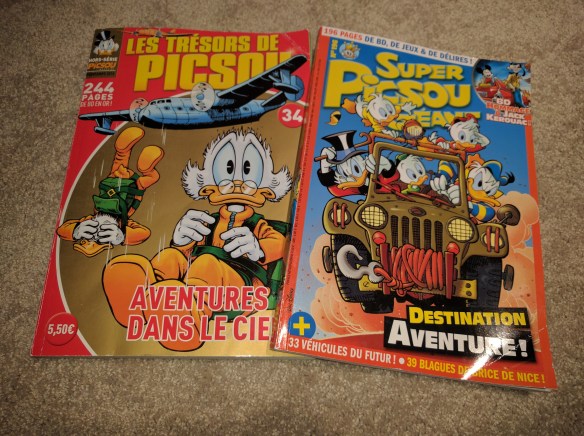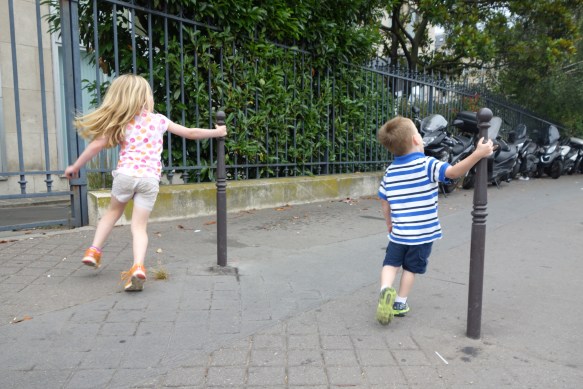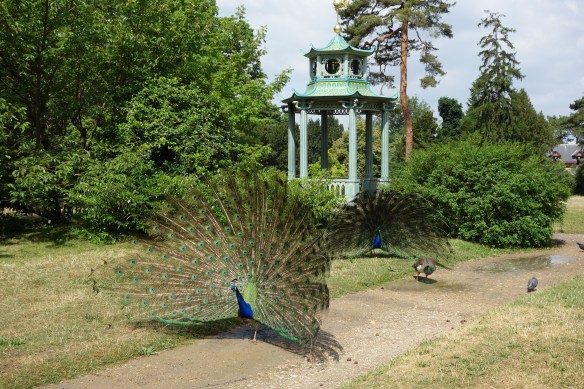I suppose the fact that I get asked this question is telling. The short answer is yes, we are. The longer answer is that, well, we’re trying, it’s a lot harder than we thought, but here’s an update:
A lot of the teaching falls on my husband, which is a heavy load to carry. He’s the fluent, native speaker of the house. He continues to speak to them mostly in French. But sometimes he slips. It’s hard for him, and as much as I jump on him when he resorts to English, I get it. He speaks English all day, he lives in English, so making the transition to French with them isn’t easy. The kids tend to answer him in English, and he’s not consistent about rephrasing what they’ve said in French for them to practice, which is a strategy we’ve found to be pretty effective. I get it – it stops the flow of the conversation, it feels like a battle. I’m on the sidelines either jumping in and doing the rephrasing for him which feels helicopter-y, or just letting the kids avoid French, which doesn’t feel good either.
When the kids were home with me more, I tended to do certain things in French: grocery shopping was a French activity. We tried to do some meals in French. I would often read French books or play games with them in French. But it’s gotten more complicated now that our daughter is in first grade – she’s gone 7 and 1/2 hours a day. That’s a long day for a 6-year-old. So when she comes home, she’s not exactly enthused by my, “Let’s play a game in French!” suggestions. Or, if I simply speak to her in French, she gives me a look that I know well – it’s my very own “are you kidding me right now?” look.
My son, the four-year-old, is even more resistant. My attempts with him are met with a wailing: “Awww, not in French!”
In homes where the stay-at-home parent, or the parent who spends more time with the children, speaks the minority language (the language not spoken in the community) the kids make better progress. I know this. But it’s a leap I haven’t made, and don’t necessarily want to. I’ve written before about how I feel like I am a different person in French, not 100% me, and with my kids being authentically and comfortably me is more important than perfection in French. Being a parent presents enough challenges without saddling myself with more. That said, I do still incorporate French when I can, and I still think it’s an important part of what I want to give to our kids.
What we are seeing is passive French speakers; they understand most everything, but their spoken French lags far behind.
However, all is not lost. When we traveled this summer to France, our kids had to speak in French. If they wanted to communicate with their cousins, aunt, uncle, and grandparents, they had to do it. And they did. Especially my 6-year-old, who had a year at a French preschool to help her knowledge and confidence. They came away having improved their French, and since then they’ve resisted less. They seem to be approaching an age where they get it – they see that French has a purpose rather than being one more thing Mommy and Papa make them do.
We were also able to enroll our daughter in a one week French summer camp here in Boulder, and it was fabulous. She LOVED her teacher and came home every day excited about speaking French, about what she had learned and even wanting to teach her brother:
I still teach French at my son’s preschool, and he’s finally getting into it. Up until this year, he chose to play outside rather than come to one of Mom’s French classes. But now he, along with a dozen or so regulars, come faithfully each week. These kids love it – it is so fun to see their enthusiasm! Every day when I pick up my son, a few little faces turn up to me, small hands grab my own, and they eagerly ask, “Are you doing French today?” Most of them can now say a few words in French, and some of them can sing entire songs.
While in France this last summer, my daughter found some of her cousin’s old comic books and fell in love. Her favorite: Picsou (Scrooge McDuck). While she can’t yet read them herself, we kept catching her “reading” to her little brother. So we brought one home, and her Mimi and Papy bought her a subscription for her birthday. She has gone from never wanting to read in French to wanting to read Picsou with Papa most nights.


My son is enjoying teaching his classmates how to count and say “Bonjour” with the right accent. And just this weekend, we were with a group of kids that were asked if they spoke any languages other than English. My kids proudly shot up their hands and said they spoke French.
So while our progress isn’t perfect, and it doesn’t resemble my imagined utopian bilingual home where fluency is achieved in all areas of both languages and our kids are happy and compliant with it all (how delusional was I pre-kiddos!), we are still making progress. Objectives have changed. I now want them to enjoy French, to have enough of a base that they can continue to pursue it with a leg up from where they would have been if we were a monolingual household, and I want them to learn about and embrace their bicultural heritage. I’m going to call us successful thus far, and still working at it.











